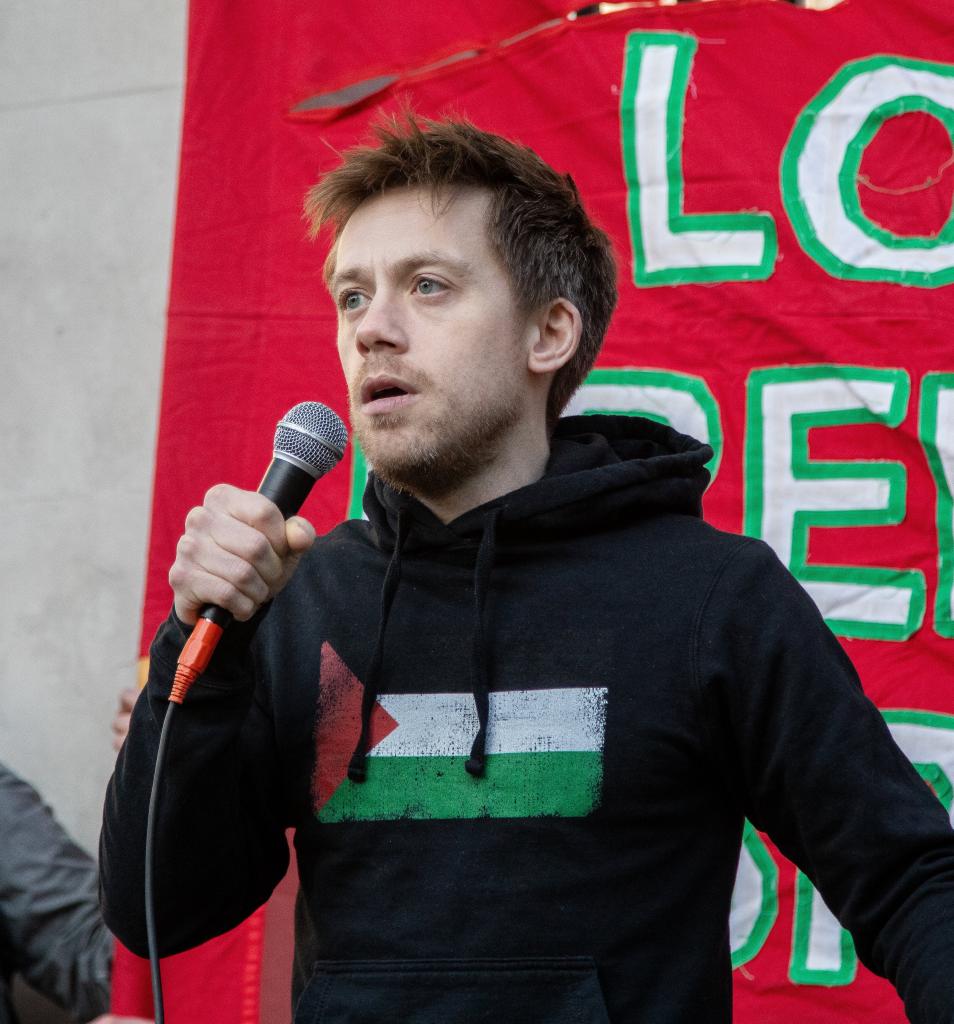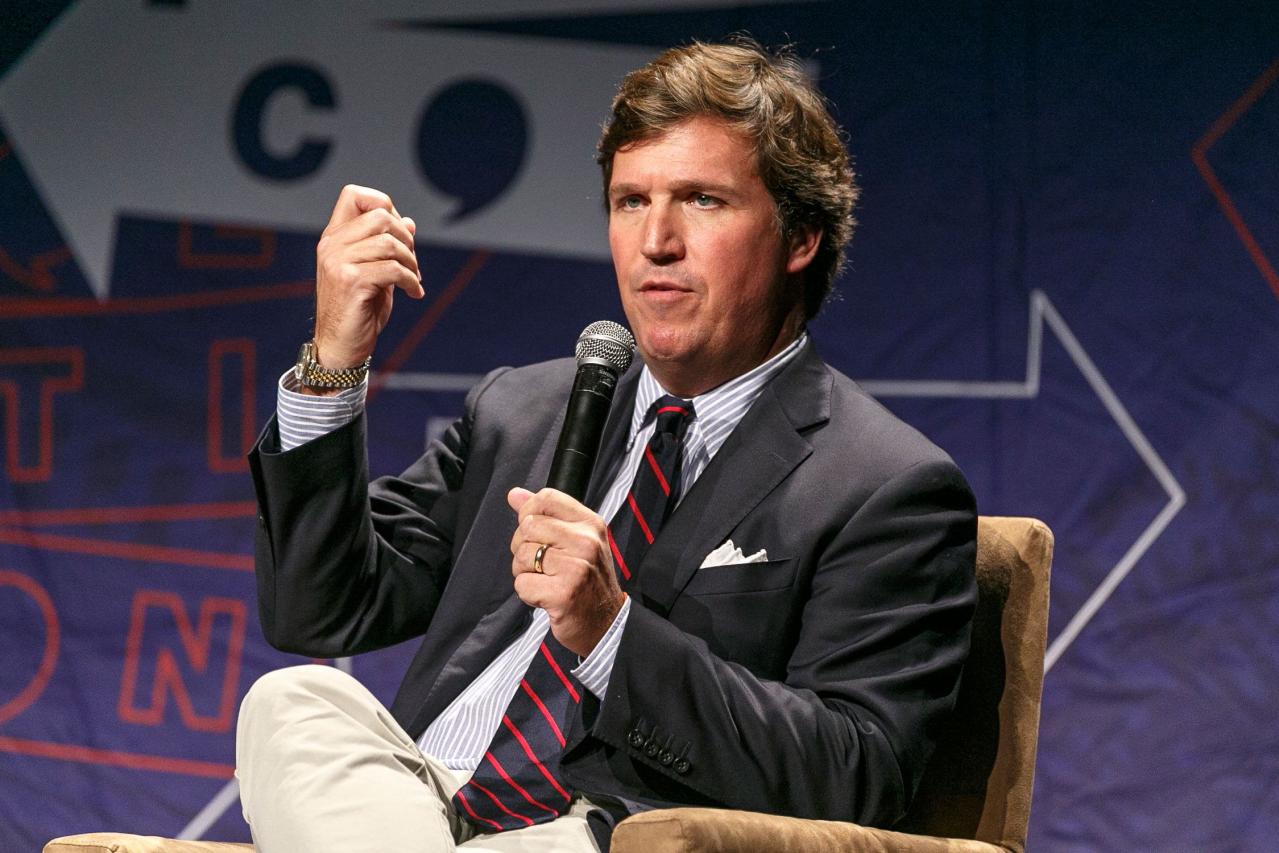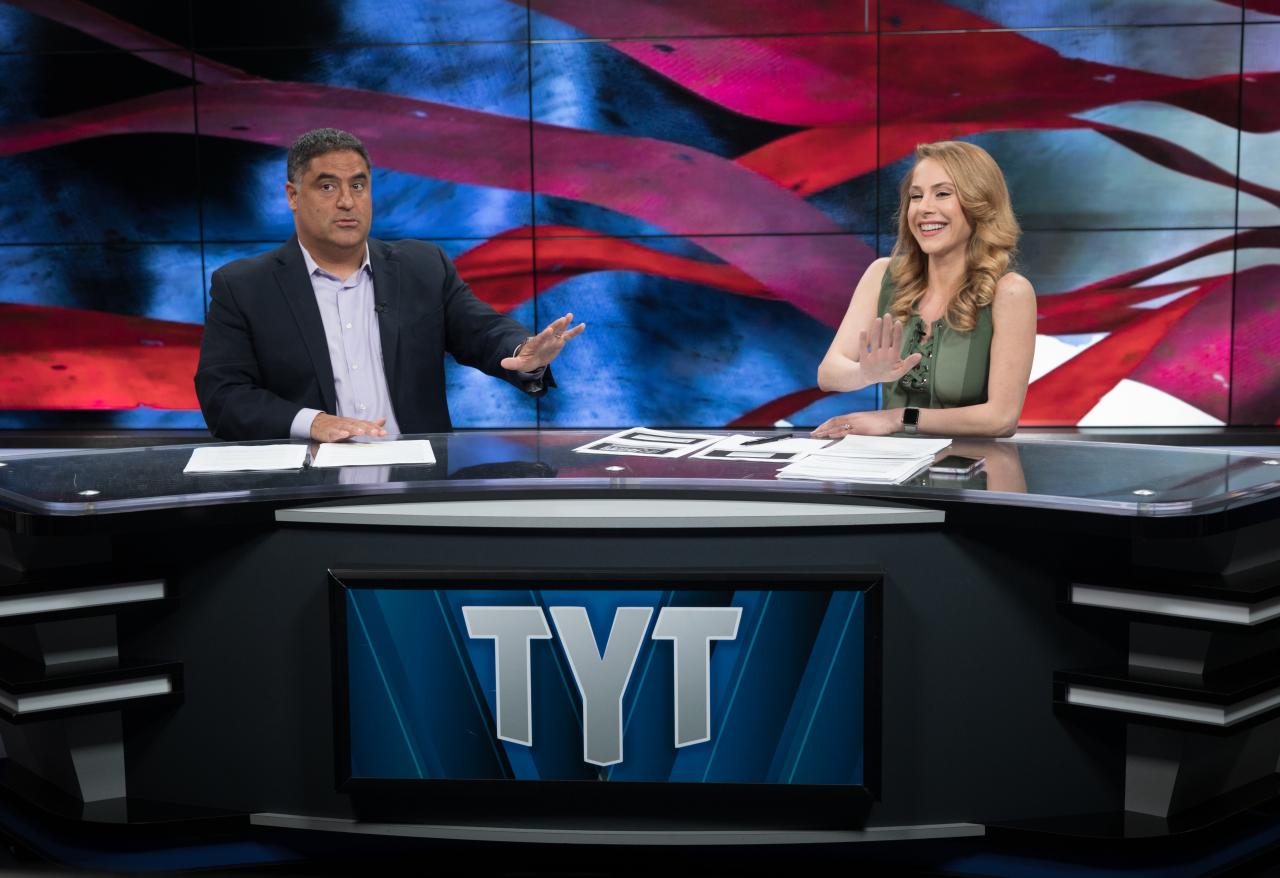How the Gaza war is forging unlikely critics of 'Israel'
The global discourse surrounding Palestine and 'Israel' is undergoing a seismic shift, and much of it is being driven from the decentralized, influential world of podcasting. While support for the Palestinian cause has long been a staple of left-wing activism, the current aggression has seen a striking new development: prominent figures from the American conservative right are now adding their powerful voices to the critique of 'Israel.'
This has created a dynamic where podcasters, for entirely different reasons, are influencing their vast audiences to reconsider long-held positions. From principled anti-imperialists to populist nationalists, these commentators are leveraging their platforms to challenge the status quo, creating unlikely alliances and reshaping the debate for millions of listeners.
Principled Opposition: Voices of the Anti-Imperialist Left
For a number of podcasters on the political left, support for Palestine is not a new or surprising position but a core component of their political identity. Their advocacy is rooted in a long-standing ideological framework of anti-colonialism, human rights, and a critique of Western foreign policy.
- Owen Jones

A leading voice on the British left, Owen Jones has been a columnist for The Guardian since 2014 and hosts a highly influential YouTube channel that functions as a political podcast. His support for Palestine is a consistent and central pillar of his work. Jones has been described as "nothing if not courageous in his support for Palestine," frequently speaking at rallies and using his platform to prove the aggression in Gaza is a "livestreamed genocide."
He is fiercely critical of Western governments for their complicity and has called for a "reckoning" for politicians and media figures who he believes have enabled war crimes, arguing that the failure to ensure accountability after the Iraq War made the current crisis possible.
Unlikely Critics: Voices from the "America First" Right
More surprising, and perhaps more politically disruptive, is the emergence of powerful critics of 'Israel' from within the American conservative movement. For these figures, breaking with the long-standing Republican pro-'Israel' consensus represents a dramatic and unlikely shift.
- Candace Owens

Candace Owens' journey makes her one of the most unlikely figures to become a vocal critic of US support for 'Israel'. She rose to prominence as a star of the mainstream conservative movement, working for Turning Point USA and later joining The Daily Wire, a media company co-founded by Ben Shapiro, one of the most staunchly pro-'Israel' voices on the right. For years, her views aligned with the conservative establishment.
The turning point came after the October 7 attack. Owens began using her popular podcast to question 'Israel's' military conduct and the billions in US aid it receives, at one point stating, "No government anywhere has a right to commit a genocide, ever."
This led to a public and bitter feud with Shapiro, culminating in her departure from The Daily Wire in March 2024, after which she declared on X, "I am finally free."
Now independent, Owens continues her show, using her significant platform to influence a segment of the right that is increasingly skeptical of foreign intervention. Her history as a leading Black conservative who once worked alongside the movement's most ardent Zionists makes her current stance a particularly stark and influential example of the shifting tides on the right.
- Tucker Carlson

For years, Tucker Carlson was one of the most powerful figures in conservative media, hosting the highest-rated show in cable news history, Tucker Carlson Tonight, on Fox News from 2016 to 2023. His show, which brought far-right perspectives to a massive mainstream audience of over three million nightly viewers, was a bastion of pro-Trump sentiment and a key influence on the Republican party. During this time, his views were largely aligned with the party's pro-'Israel' consensus.
His abrupt firing from Fox News in April 2023, following the network's massive settlement with Dominion Voting Systems, marked a dramatic turning point. Untethered from corporate media, Carlson immediately launched a new show on X (formerly Twitter) and a podcast, The Tucker Carlson Show, which quickly became highly popular. He is also reportedly raising hundreds of millions of dollars to launch his own media company with former White House advisor Neil Patel.
On these new independent platforms, Carlson has become an unlikely and powerful critic of the US-'Israel' alliance. His position is rooted in a paleoconservative, "America First" ideology that is deeply skeptical of foreign intervention. This worldview questions whether the US-'Israel' alliance serves American interests, arguing that it drags the country toward conflicts that benefit 'Israel' at America's expense.
His commentary has included:
- A contentious interview with Republican Senator Ted Cruz, where Carlson aggressively questioned Cruz's support for 'Israeli' strikes on Iran, at one point telling the senator, "You don't know anything about Iran".
- Blasting his former Fox News colleague Sean Hannity and other conservatives as "warmongers" for cheering on 'Israeli' attack against Iran.
- Interviewing Palestinian Christian Rev. Dr. Munther Isaac to criticize American Christian leaders for not being more critical of 'Israel's' actions in Gaza.
- Stating that the US is "losing moral authority" for not using its power to demand a ceasefire.
This sharp turn from a figure who once dominated mainstream conservative media has caused a major fissure in the movement. While critics accuse him of promoting antisemitic tropes about Jewish influence, his commentary has introduced a powerful, nationalist critique of the US-'Israel' relationship to millions of listeners who might otherwise never question the alliance.
- The Young Turks

As the longest-running daily online news show, The Young Turks (TYT) has been a progressive fixture for over two decades. Co-founders Cenk Uygur and Ana Kasparian have consistently covered the 'Israeli'-Palestinian war from a critical perspective.
Cenk Uygur has been an outspoken critic of 'Israel's' military actions and the US government's support for them, engaging in numerous high-profile podcast debates arguing for a permanent ceasefire.
Ana Kasparian has also been a critical voice, hosting segments on 'Israeli' settler violence and the humanitarian crisis.
While Ana Kasparian remains a co-host of the progressive show The Young Turks, she has recently undergone a significant public evolution in her political views, making her an unlikely figure in a different sense. Since 2024, she has distanced herself from the "progressive" label, declaring herself "unaligned" and "politically homeless."
- Ian Carroll

A podcaster and commentator, Ian Carroll has become an unlikely but increasingly visible voice in the discourse, largely through appearances on some of the world's most popular podcasts, including The Joe Rogan Experience and Candace Owens' show, Candace.
His commentary often delves into conspiracy theories, including claims that Jeffrey Epstein was a Mossad agent, which has made him a controversial figure. His presence in these spaces is significant because it brings a critique of 'Israel' to massive audiences that are not typically engaged with left-wing, anti-imperialist arguments.
Ultimately, the convergence of these disparate voices, from left-wing anti-Zionists to right-wing isolationists, has thrust the debate over 'Israel' and Palestine into the mainstream of American political and cultural life.
It has become a key fault line in the broader realignment of political identities, ensuring that the questions surrounding the conflict, US foreign policy, and the meaning of justice will only become more central and more fiercely contested in the years to come.




